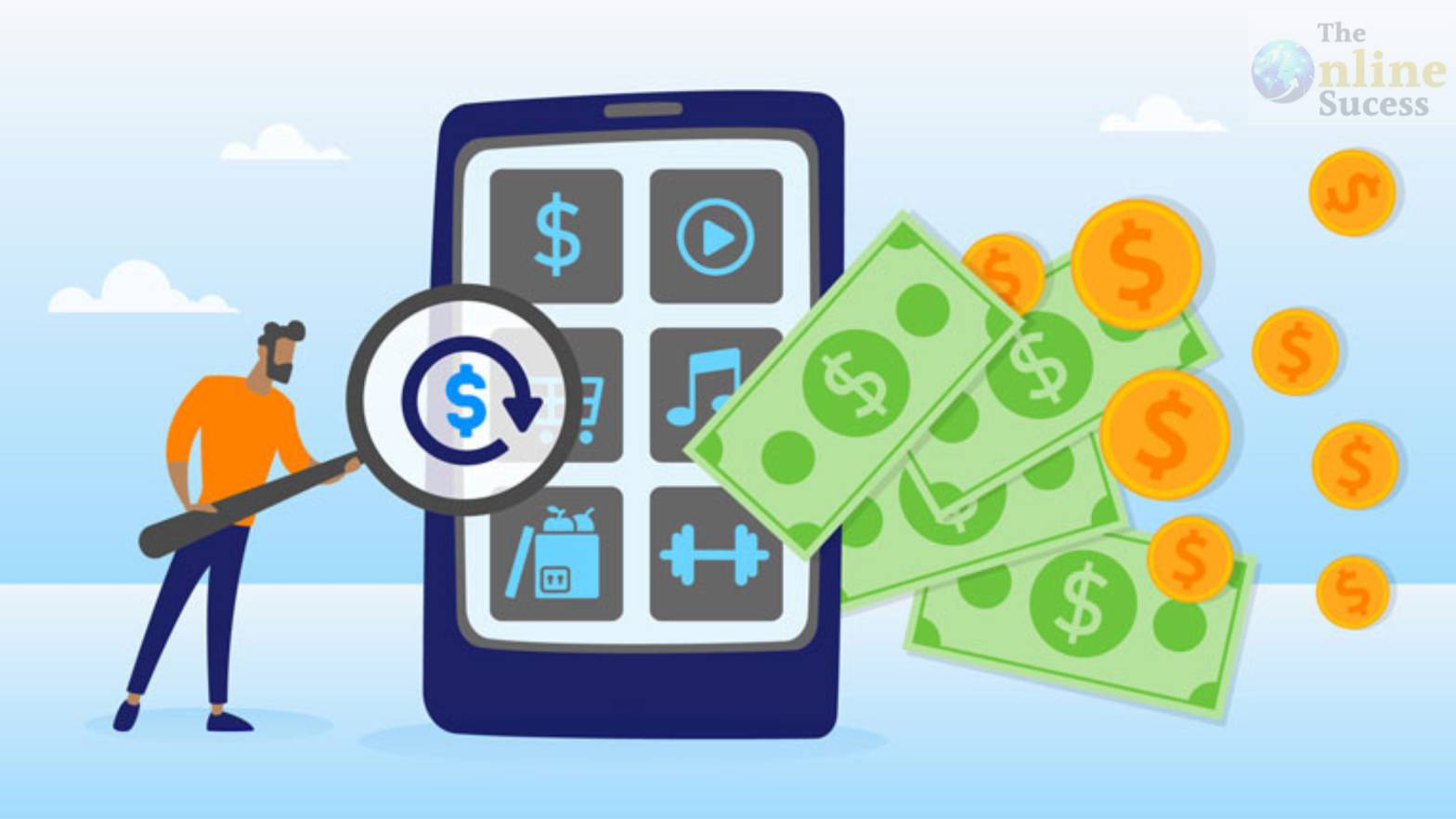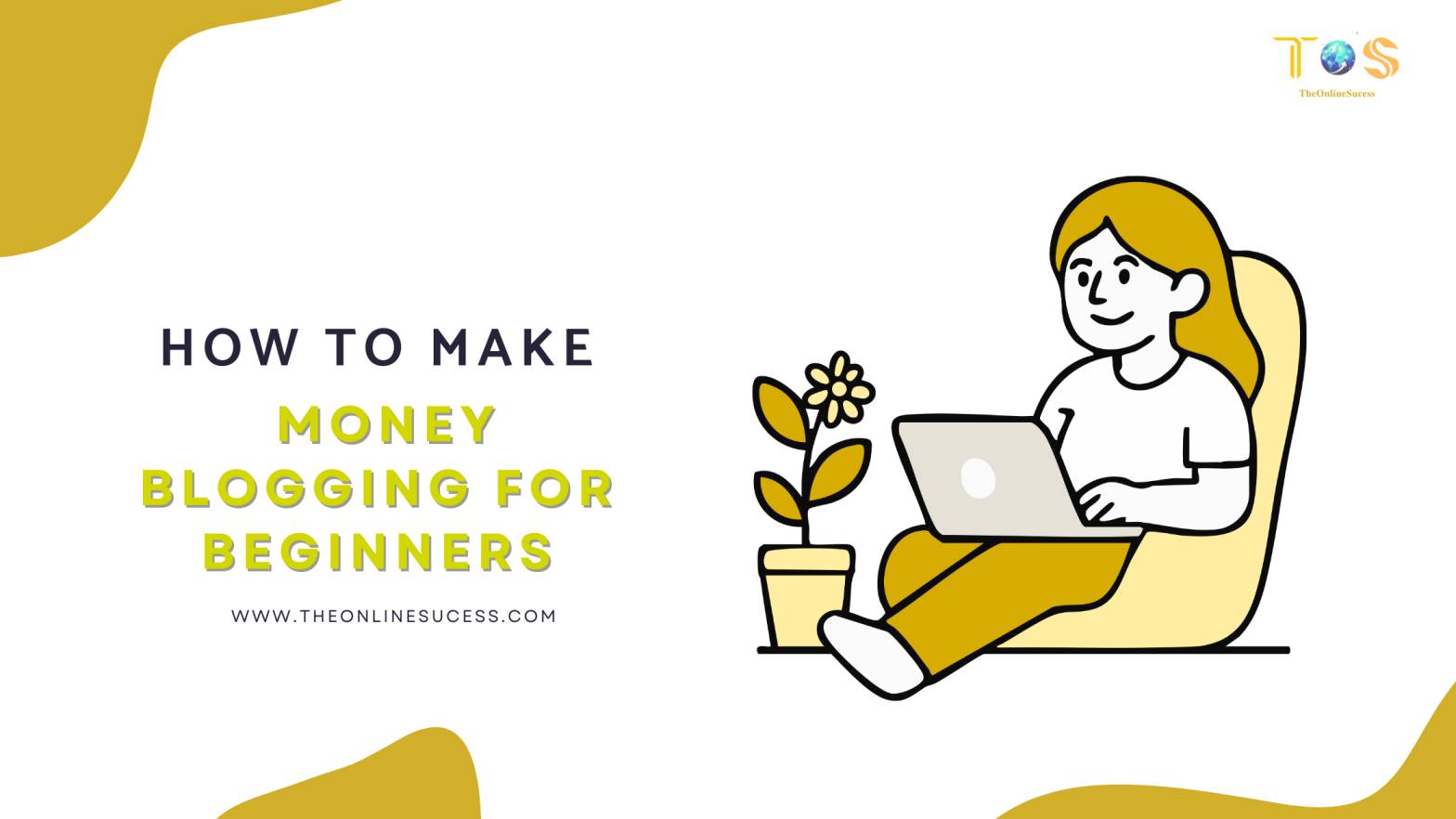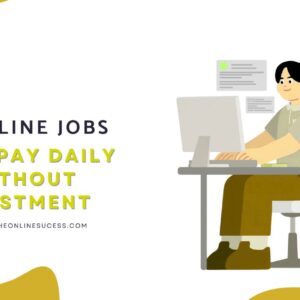Blogging has transformed from a hobby into a profitable career, with thousands of new bloggers turning their passion into revenue streams. In 2026, making money through blogging is more accessible than ever, thanks to diverse monetization options and the growing digital economy.
Blogging is no longer just a hobby, it has evolved into a potential career path that allows individuals to turn their passion into profit. Whether through ad revenue, affiliate marketing, or selling digital products, there are numerous ways to monetize your blog. But how do you start a blog and make money as a beginner? This guide will walk you through the steps of monetizing your blog and what you need to know to start making an income.
How Much Money Can a Blogger Earn?
The income potential of blogging has skyrocketed, and bloggers today can earn a substantial amount depending on their niche, audience, and monetization strategy. Some bloggers make a modest side income, while others rake in six to seven figures annually. On average, beginner bloggers can expect to earn anywhere between $200 to $2,500 per month in their first year. As experience and traffic grow, that income can soar.
According to recent studies, proficient bloggers with significant traffic can earn $5,000 to $30,000 per month, while top earners can bring in more than $100,000 monthly. Monetization strategies such as affiliate marketing, ad placements, sponsored posts, selling digital products, and offering online courses are some of the primary income streams for bloggers. The type of niche also plays a huge role in potential earnings.
5 Steps to Start a Blog
The income potential of blogging has skyrocketed, and bloggers today can earn a substantial amount depending on their niche, audience, and monetization strategy. Some bloggers make a modest side income, while others rake in six to seven figures annually. On average, beginner bloggers can expect to earn anywhere between $200 to $2,500 per month in their first year. As experience and traffic grow, that income can soar.
According to recent studies, proficient bloggers with significant traffic can earn $5,000 to $30,000 per month, while top earners can bring in more than $100,000 monthly. Monetization strategies such as affiliate marketing, ad placements, sponsored posts, selling digital products, and offering online courses are some of the primary income streams for bloggers. The type of niche also plays a huge role in potential earnings.
Here are some of the best profitable niches for blogging:
1. Choose a Profitable Niche
Your blog’s niche plays a significant role in how much money you can make. A profitable niche should be something you’re passionate about and have knowledge of, but it should also have an audience willing to spend money. Popular niches include personal finance, health and wellness, travel, and technology. Doing thorough research on your target audience’s needs will help you select a niche that’s not oversaturated but has enough demand.
Personal Finance
- Monetization Options: Affiliate links (banks, investment apps), ads, online courses, eBooks
- Popular Sub-niches: Budgeting, investing, debt management, financial independence, frugal living
Health and Fitness
- Monetization Options: Sponsored content, fitness products, affiliate marketing, membership sites, digital products like workout plans or meal plans
- Popular Sub-niches: Weight loss, mental health, nutrition, yoga, home workouts
Technology and Gadgets
- Monetization Options: Product reviews, affiliate marketing (Amazon, tech gadgets), sponsored content, YouTube integration
- Popular Sub-niches: Mobile gadgets, smart home devices, gaming, software reviews, app development.
Make Money Online
- Monetization Options: Affiliate marketing, selling digital products (e.g., courses, eBooks), sponsored posts
- Popular Sub-niches: Passive income, side hustles, freelance work, digital marketing, remote work
Travel
- Monetization Options: Affiliate marketing (flights, hotels, gear), sponsored posts, travel partnerships, selling photography
- Popular Sub-niches: Budget travel, luxury travel, solo travel, travel hacks, destination guides
Food and Recipes
- Monetization Options: Affiliate marketing (kitchen gadgets, ingredients), ads, sponsorships, eBooks, meal plans
- Popular Sub-niches: Vegan recipes, meal prep, baking, keto or low-carb diets, international cuisine
Parenting and Family
- Monetization Options: Sponsored posts, affiliate marketing (baby products, parenting tools), selling courses, eBooks
- Popular Sub-niches: Pregnancy, early childhood, homeschooling, family budgeting, parenting tips
Top 17 Best Profitable Niches For Blogging
2. Start Publishing Great Content
Content is king when it comes to blogging. To attract readers and monetize your blog, you need to consistently produce high-quality content that solves problems, educates, or entertains your audience. Use SEO techniques and focus on your main keywords to ensure that your content ranks in search engines. Regular blog updates will help keep your audience engaged and coming back for more.
3. Build Organic Traffic To Your Blog
The more visitors you have, the more opportunities you’ll have to make money. Start by using SEO to optimize your posts for search engines and drive organic traffic. Social media platforms, guest blogging, and email marketing are other powerful ways to increase your blog’s reach. The key to building traffic is patience and consistency.
4. Build A Community Around Your Blog
Engaging with your audience is vital for growing your blog and increasing your income. Building a community around your blog through social media, email newsletters, and comments will foster loyalty and trust. A dedicated community is more likely to share your content and become long-term followers, which can increase your blog’s visibility and profitability.
5. Use Analytics and Search Console for Tracking
Engaging with your audience is vital for growing your blog and increasing your income. Building a community around your blog through social media, email newsletters, and comments will foster loyalty and trust. A dedicated community is more likely to share your content and become long-term followers, which can increase your blog’s visibility and profitability.
15 Best Blogging Platforms Sites to Start Your Blog
How to make money blogging for beginners
1. Join an affiliate marketing program

Affiliate marketing essentially means that you make money blogging by promoting other people’s products. This involves adding affiliate links to various products or services within your posts, throughout your site or across your social media accounts. When your site visitors click on those links and make a purchase, you’ll earn a commission from the sale.
To find brands to partner with as an affiliate, do your market research and browse the web for affiliate marketing programs that can connect you with different products or companies. Some of the most popular programs include:
CJ Affiliate: Connect with widely recognized brands and earn commissions by promoting their products.
ShareASale: Build profitable partnerships with brands across a variety of sectors.
Amazon Associates: Promote products sold on Amazon and earn up to 10% in associate commissions.
Clickbank: Explore a range of ecommerce tools, a global affiliate marketplace, and gain access to support and education.
Affiliate marketing is an effective strategy for both professional and personal blogs, so take the time to try out a few different platforms to find what works best for you.
2. Sell advertising placements

One of the easiest ways to make money as a beginner blogger is to sell ad space on your blog. You can register with platforms like Google Adsense, Mediavine, Media, and others. By adding a piece of code to your blog, ads will be added to your content, and you can earn money when your visitors click on them.
The amount of money you can make from ads depends on three things:
- Your organic traffic levels
- Placement of your ads
- The number of available advertisers for your niche.
3. Write Sponsored Product Reviews

One of the simplest ways to make money blogging for beginners is by writing sponsored product reviews. Companies will pay you to review their products, helping them gain exposure while you earn income.
How to Find Companies for Product Reviews:
Join Sponsored Review Platforms: Websites like Sponsored Reviews and IZEA connect bloggers with brands willing to pay for product reviews.
Reach Out to Brands Directly: Once your blog gains some traffic, you can approach brands directly in your niche. Create a media kit outlining your blog’s traffic, audience demographics, and past collaborations.
Utilize Influencer Networks: Join networks like FameBit or Cooperatize where you can connect with companies looking for bloggers to promote their products.
Writing sponsored reviews not only provides income but also helps you build a relationship with brands in your industry.
4. Sell Digital and Physical Products

Selling products is another excellent way for beginners to make money blogging. Your blog can serve as a platform to sell both digital and physical goods to your audience.
What Type of Products to Sell:
Digital Products: These include eBooks, courses, printables, and stock photos. For example, if you run a fitness blog, you could sell downloadable workout plans.
Physical Products: You can also sell items like branded merchandise, handmade crafts, or even print-on-demand products such as T-shirts and mugs. Use platforms like Shopify or WooCommerce to set up an online store.
By selling your own products, you’ll have full control over your profits and can directly cater to your audience’s needs.
5. Selling Your Own Products or Services

Selling your own products or services is another profitable strategy for making money with a blog. As a beginner, you can start small and grow as you gain more traffic.
Types of Products or Services to Sell:
- Online Courses and Workshops: Share your expertise by creating courses or workshops on platforms like Teachable or Podia.
- Consulting Services: If you’re knowledgeable in areas like marketing, business coaching, or SEO, you can offer consulting sessions through your blog.
- Membership Sites: Create exclusive content for your readers by offering a membership plan that grants them access to in-depth tutorials or one-on-one support.
Selling products or services allows you to offer more value to your audience while building a sustainable business around your blog.
6. Offer Paid Subscriptions

Offering paid subscriptions is a growing trend among bloggers. This method allows you to provide premium content to your most loyal readers while generating recurring revenue.
Types of Paid Subscriptions to Sell:
- Exclusive Content: Offer in-depth articles, videos, or tutorials only available to paying subscribers.
- Premium Memberships: Provide special perks, like early access to blog posts, behind-the-scenes content, or discounts on products.
- Community Access: Create a private community where subscribers can interact with you and other members. Platforms like Patreon and Memberful make it easy to offer these services.
Paid subscriptions provide a steady income stream while helping you build a loyal reader base.
7. Provide Consulting Services

Consulting is a powerful way to make money blogging for beginners if you have expertise in a particular field. Many bloggers offer one-on-one consultations to help their readers solve specific problems or improve their skills.
What You’re an Expert In:
- Blogging and SEO: If you’ve had success with your blog, you can offer consulting on content strategies, SEO, and digital marketing.
- Niche-Specific Expertise: For example, if your blog is about personal finance, you could offer budgeting or investment advice. Fitness bloggers could provide workout or nutrition consulting.
Platforms like Calendly and Clarity.fm help you manage appointments and offer a seamless way for your audience to book your consulting services.
8. Produce a Podcast and Get a Sponsor

Starting a podcast can be an excellent addition to your blog, allowing you to engage with your audience on a more personal level. Podcasts are easy to produce and can be monetized through sponsorships.
How to Produce a Podcast:
- Recording Equipment: All you need to start is a good microphone and basic editing software like Audacity or GarageBand.
- Host Your Podcast: Use platforms like Anchor or Buzzsprout to host your podcast and distribute it to platforms like Spotify and Apple Podcasts.
How to Monetize Your Podcast:
- Get Sponsors: Once your podcast grows, you can attract sponsors who will pay to have their products mentioned in your episodes.
- Offer Premium Episodes: You can also offer exclusive episodes or behind-the-scenes content to paying subscribers.
Producing a podcast helps you build a deeper connection with your audience while offering new monetization opportunities.
Also Read: 16 Online Jobs That Pay Daily Without Investment 2026
How long does it take to make money blogging for beginners?
The time it takes to make money blogging for beginners typically ranges from 6 to 12 months, depending on factors like consistency, niche selection, and traffic growth. Building a blog with high-quality, SEO-optimized content is key to attracting readers, and it usually takes a few months for search engines to start ranking your posts. During this time, you can experiment with monetization strategies like affiliate marketing, ads, or selling digital products. While some bloggers may see small earnings within a few months, it often takes around a year to generate steady income from your blog.
Reasons to Start a Blog
Blogging has become one of the most popular platforms for sharing ideas, building businesses, and connecting with people worldwide. Whether you’re looking to share your expertise, make money online, or just enjoy a creative outlet, there are countless reasons to start a blog. Here are some of the top motivations for getting started:
- Share Your Passion
Blogging gives you a space to write about topics you’re passionate about, whether it’s travel, cooking, fitness, or personal development. Sharing your passion can inspire others and help you connect with like-minded people who share your interests.
- Build an Online Presence
In today’s digital age, having an online presence is essential. A blog can serve as your personal platform to showcase your work, ideas, and projects. Whether you’re a freelancer, entrepreneur, or hobbyist, a blog enhances your visibility and helps you stand out.
- Make passive income through blogging
Blogging can be a lucrative income stream. Through affiliate marketing, ads, selling products, and sponsored content, you can turn your blog into a business. Many successful bloggers have transitioned to full-time careers by monetizing their blogs.
- Boost Your Writing and Communication Skills
Blogging regularly helps you become a better writer and communicator. It encourages you to organize your thoughts, articulate ideas clearly, and create valuable content for your readers. Over time, you’ll develop strong writing habits that can benefit you in many areas of life.
- Establish Yourself as an Expert
If you’re passionate about a certain subject, starting a blog allows you to share your knowledge and position yourself as an expert in that field. Whether it’s finance, marketing, or health and wellness, writing regularly on a specific topic helps build credibility and trust with your audience.
6. Flexible and Low-Cost Start-Up
Unlike many businesses, starting a blog is low-cost and doesn’t require much overhead. All you need is a domain name, hosting, and a blogging platform like WordPress or Blogger. Plus, you can work on it anywhere, making it a flexible and accessible way to pursue your interests.
7. Help and Inspire Others
A blog allows you to share insights, experiences, and advice that can positively impact others. Whether it’s solving a problem or inspiring change, your content can help people in meaningful ways.
FAQs on Making Money Blogging
Ans: Beginners can make money through affiliate marketing, selling ad space, sponsored content, digital products, offering consulting services, or joining ad networks like Google AdSense. It’s important to start by building quality content and growing an audience.
Ans: Typically, it takes 6 to 12 months to start earning money from a blog. However, this depends on factors like content quality, traffic growth, niche selection, and the monetization strategies you use.
Ans: While more traffic often leads to more income, some monetization methods like affiliate marketing or offering consulting services can start making money with a smaller, targeted audience. It’s all about the quality and relevance of your traffic.
Ans: The easiest ways for beginners to monetize are affiliate marketing, where you promote products for a commission, and Google AdSense, which places ads on your blog. These methods are straightforward and don’t require much upfront investment.
Ans: Yes! Blogging is still a profitable venture in 2024, with opportunities like affiliate marketing, digital products, sponsored posts, and more. The key is choosing a niche, creating valuable content, and using effective monetization strategies.
Ans: Blogging income varies greatly. Some bloggers make a few hundred dollars a month, while others earn six figures annually. Factors like traffic, niche, and monetization strategies impact how much you can earn.
Ans: No, you don’t need advanced technical skills to start a blog. Many platforms like WordPress or Blogger make it easy to set up a blog. You can use tools and plugins to help with SEO, analytics, and monetization without needing coding knowledge.
Ans: Content that solves problems, provides valuable information, or offers practical advice tends to perform well. Niche-focused posts with SEO optimization are great for generating traffic and converting readers into customers.
Beginner's Guide to Staying Consistent with Blogging
Starting a blog is exciting, but maintaining it over the long term can be challenging. Many new bloggers struggle with consistency, often feeling overwhelmed or discouraged when they don’t see immediate results. To stay committed, it’s essential to set realistic goals, develop a content schedule, and focus on creating valuable content. Understand that blogging is a marathon, not a sprint. Celebrate small wins, stay patient, and remind yourself why you started in the first place—this will help you push through challenges and keep your blog thriving.





Pingback: Top 10 Most Popular AI Tools You Need to Use in 2025
Pingback: How to start a career in Artificial Intelligence ( AI) 2025
Pingback: 15 Best Blogging Platforms Sites to Start Your Blog 2025
Pingback: Freelance Writing Jobs For Stay at Home Moms